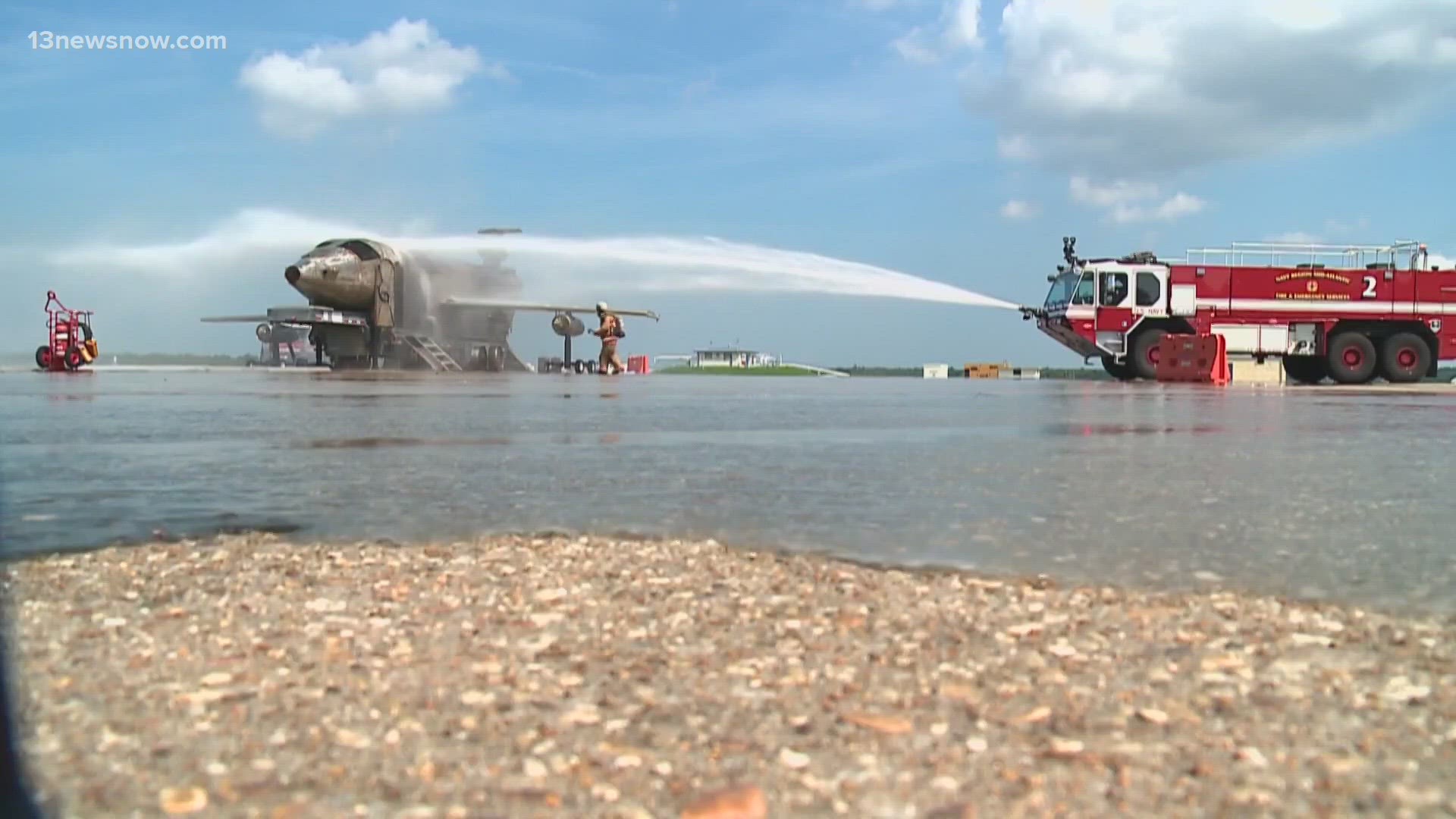NORFOLK, Va. — It's being called "a contamination time bomb."
The man-made compound Per- and Polyfluoroalkyl Substances -- or "PFAS" for short -- are linked to increased risk of cancer and other diseases. PFAS has been confirmed or suspected at 710 military sites, according to the independent, non-profit activist organization, the Environmental Working Group (EWG).
According to EWG's list of the 100 military installations with the highest levels of the so-called "forever chemicals" in the groundwater, four of the bases are here in Hampton Roads with Langley Air Force Base having the highest levels, followed by Naval Air Station Oceana, Fort Eustis and Naval Auxiliary Landing Field Fentress in Chesapeake.
"The PFAS has probably been there for a while because of the decades of use that the Department of Defense has had for PFAS in the firefighting foam, which means that people that served at the bases were likely exposed at some point in their service to PFAS in the drinking water," said Melanie Benesh, EWG Vice President for Government Affairs.
In 2021, the Government Accountability Office projected that the PFAS cleanup cost was $2.1 billion.
But, EWG estimates the true cost to be $31 billion.
"The crisis is getting worse, not better, and federal efforts are not keeping pace. In fact, cleanups are falling behind," said John Reeder, EWG Vice President for Federal Affairs.
The Pentagon pledged in 2020 that the Department is committed to completing the clean-up.
"DOD is taking actions to reduce the risk of PFAS. Our efforts reinforce the commitment to meeting critical mission requirements while protecting health and the environment," said Maureen Sullivan, former Director of Environmental Management.
Exposure to PFAS is known to increase the risk of testicular, kidney, and thyroid cancers as well as several other severe illnesses, including reproductive and developmental harm, low birth rates, and reduced sperm counts.

